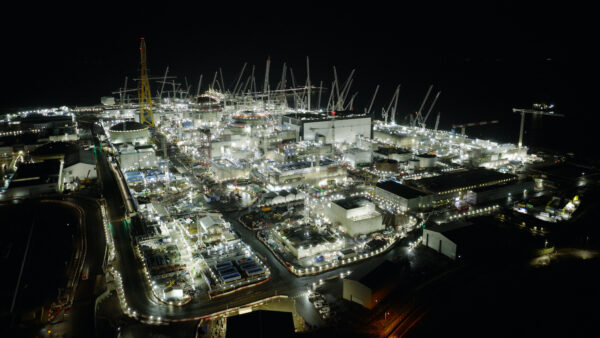About 50% of the £300m contract to carry out the marine works for the proposed £1bn Swansea Bay tidal lagoon will be committed to UK workforce, partners and supply chain, says client Tidal Lagoon Power, as part of the 65% of locally procured ccontent the company wants to achieve for the entire project.
China Harbour Engineering Company (CHEC), a subsidiary of the state-owned China Communications Construction Company, was named preferred bidder for the contract earlier this week and will be responsible for the construction of the six-mile sea wall as part of the tidal power station planned in Swansea bay.
According to Tidal Lagoon Power the delivery of the project “will kick-start a programme of Chinese investment into UK infrastructure”.
Related articles
Staffan Engstrom: The Chinese are coming… and they’re here to stay
Speaking to Construction Manager Labour’s Mike Hedges, Welsh Assembly Member for Swansea East and a supporter of the project, said: “Obviously I would have preferred a local contractor and all the work done by local workers, but it is my understanding that there is a commitment by the company to employ local labour. The danger of only using local contractors is that British contractors would not be able to undertake work in other countries.”
Meanwhile, Keith Clarke, non-executive chairman at Tidal Lagoon Swansea Bay, also responded to claims in The Guardian that locals were annoyed about plans to use stone from a Cornish quarry, owned by Tidal Lagoon Power: “Approximately 5 million tonnes of rock will be used in the construction of the lagoon. The responsibility to source this rock and transport it to Swansea Bay will sit with CHEC. No decisions have been taken on the source of rock supply.”
Laing O’Rourke has already been named preferred bidder for the £200m contract to build the turbine house block with Welsh civil engineer Alun Griffiths Contractors selected for the £25m package of ancillary works earlier this week.
Other contract wins include General Electric and Andritz Hydro being named preferred bidders for the £300m contract to deliver the power station’s turbines in February.
Mark Shorrock, chief executive of Tidal Lagoon Power, said he was pleased to welcome a Chinese contractor to the project – and also to sign a Memorandum of Understanding with CHEC to explore opoportunities for the development of tidal lagoon power projects along China’s 18,000 km of coastline.

CHEC has won the £300m contract for marine works at Swansea Bay
Shorrock said: “I have worked in China, speak Chinese and have huge esteem for China’s delivery capability and ability to deliver projects to time and budget. Having encouraged CHEC to bid for this job and invest in western European infrastructure projects by creating a British base, I was delighted, following an intensive competition, when my engineering colleagues recommended CHEC for our seminal Swansea Bay project.”
Richard Graham, MP for Gloucester, also reacted positively to the news, saying: “The opportunity for later exporting British tidal expertise to Asia with CHEC is considerable and highlights the benefits of positive business engagement with China.”
Lin Yi Chong, CHEC’s president & CEO, agreed that his company would be seriously looking to invest further in the UK and European market: “CHEC has taken the strategic decision to enter the UK infrastructure investment and construction market, and we see the Swansea Bay Tidal Lagoon, a pioneering scheme that could bring the world a new energy option, as the cornerstone project in our business development strategy in the UK and wider Europe.
“We have not invested directly into the Swansea Bay project but we made a proposal to do so and will seek opportunities to invest in similar projects in the UK and Europe. We will seek to grow our UK presence through significant investment into a subsidiary business and through a programme of UK infrastructure investment and construction,” he continued.
A decision on granting planning permission for the tidal lagoon is expected to be announced around 10 June, and Tidal Lagoon Power is currently in negotiations with the Department of Energy and Climate Change to agree a “Contract for Difference” for the scheme.










